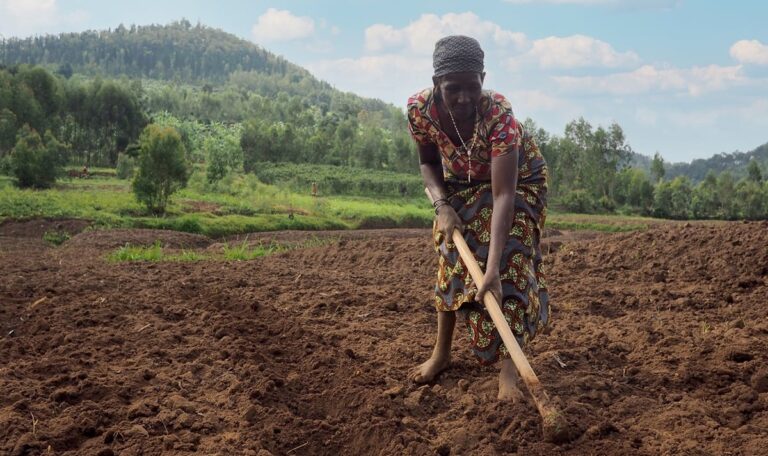The Extraordinary African Union Summit on the Comprehensive African Agricultural Development Plan (CAADP) concluded on 11 January 2025 in Kampala, Uganda, with the launch of the innovative Kampala Declaration on African Agriculture and Food Systems 2026-2035. It was adopted.
The new declaration replaces the Malabo declaration, whose implementation period ends this year.
During the summit, African leaders also unveiled the landmark 10-year CAADP Action Plan ( 2026-2035). The plan specifies the steps necessary to achieve the goals of the declaration, including a clear implementation and monitoring strategy.
CAADP’s vision, “Sustainable and resilient agriculture and food systems for a healthy and prosperous Africa,” is consistent with Agenda 2063’s goal of achieving “the Africa we want” and a common African position on food systems. Masu. This was reiterated in the first African Climate Summit Declaration of 2023.
After 20 years, we have moved from a focus on agriculture-led growth to a broader agricultural and food system approach.
Malabo Declaration
CAADP was formally launched during the second regular session of the AU General Assembly in Maputo, Mozambique in July 2003 to address challenges such as low agricultural productivity, food insecurity and lack of investment in African agriculture. did.
At this meeting, African Heads of State and Government adopted the Maputo Declaration on Agriculture and Food Security, urging AU member states to allocate at least 10 percent of their national budgets to agriculture and rural development, and to increase at least annual agricultural productivity. It called for achieving improvements in 6 percent. The declaration emphasized the importance of increasing agricultural productivity through increased investment in this sector.
The 2014 Malabo Declaration introduces ambitious new goals, including eradicating hunger and malnutrition, tripling intra-African trade, strengthening resilience and increasing accountability for actions and results, as well as establishing principles and goals. We have expanded the CAADP framework by reaffirming the following: However, the continent remains off track in achieving the commitments outlined in the Malabo Declaration, according to the African Union’s Fourth Biennial Review Report released in February 2024. It is noteworthy that, as highlighted in the report, none of the Member States have met the goal of ending hunger by 2025, one of the Declaration’s seven key commitments.
According to FAO’s State of Food Security and Nutrition in the World report, Africa faces significant food security challenges, with 20.4 percent of the population experiencing hunger and 58 percent suffering from food insecurity. I’m here.
Although progress has been made in reducing stunting rates, malnutrition remains a significant concern, contributing to increased mortality and hindering development. Meanwhile, the rise in obesity and related health problems is increasing the economic and health burden on the continent.
Without urgent and stepped-up efforts, Africa will not achieve its goal of eradicating hunger and malnutrition by 2025 or 2030.
Africa’s agricultural sector has been severely affected by recent shocks such as the COVID-19 pandemic, internal conflicts, the Russo-Ukrainian war, climate change and corruption. These disruptions have highlighted the urgent need for a new CAADP agenda to transform the continent’s agriculture and food systems beyond 2025.
In response, the 37th African Union General Assembly held in February 2024 called for the formulation of a post-Malabo CAADP agenda for 2026-2035. This new framework aims to build resilient agriculture and food systems that can address these complex challenges and ensure sustainable growth.
The road ahead
Building on the Maputo and Malabo phases of the CAADP, the post-Malabo agenda adopted in Kampala on 11 January 2025 introduces an agro-food systems approach. This approach allows stakeholders to address challenges across the food value chain while aligning policies with broader development goals.
This strategic shift is based on recognizing the complex connections between agriculture, nutrition, economic development, and other sectors. To address trade-offs and interconnections, policies need to be better integrated, taking into account sustainable practices from farm to fork, the complexity of value chains, and impacts on diet and nutrition.
Agri-food systems approaches protect future food production by prioritizing environmental sustainability and promoting diverse, nutritious and affordable diets, reducing nutritional deficiencies and micronutrient deficiencies. Combat all forms of malnutrition such as.
Building resilience is critical to adapting to and recovering from shocks such as climate change, pandemics, conflict and economic disruption. Despite some progress, Africa faces challenges in this area, with only two countries on track to meet resilience-building goals by 2023. Slow progress in building resilience is hindering the achievement of other important goals, such as ending hunger and ending hunger. Eliminate malnutrition and reduce poverty.
The summit was held in Kampala from January 9 to 11, 2025, and was attended by the leaders of Kenya, Ethiopia, Angola, Burundi, Somalia, and other countries. “The Extraordinary African Union Summit marks the end of the Malabo Declaration on Agriculture, replaced by a new Kampala Declaration that commits member states to modernize their agricultural sectors,” Kenyan President William Ruto said in a statement at the summit. ” he said.
Africa is currently hardest hit by climate change and has the largest agricultural productivity gap to close, but the decade-long CAADP has set the stage for a new era in African agriculture. The organization advocates for the adoption of climate-smart innovations and technologies to ensure food security for Africa’s population, which is expected to double to around 2.5 billion by 2050.


